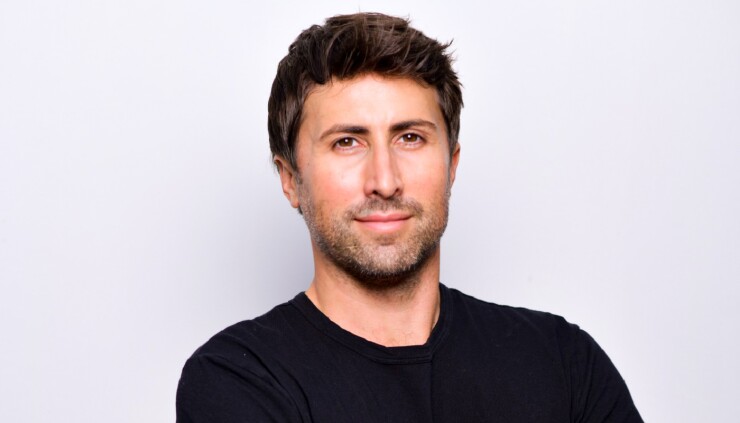The neobank Dave appears to be making progress on its
While Dave's unit economics continue to improve, it still operated at a loss last quarter, according to financials the company reported Thursday. Its net revenue beat analyst expectations, but it also had higher operating expenses than expected. The company reaffirmed its guidance of reaching $200 million to $215 million in operating revenue for the year and a variable profit margin of 40% to 44%.
Analysts with Jeffries rated Dave a "hold" on Thursday, following the earnings call. On Friday, the stock was up 20% from the previous day's close, to $0.36 per share. John Hecht, an equity analyst for Jeffries who covers Dave, said the company plans to issue a reverse stock split between 1-to-5 and 1-to-50, and that the company plans to issue more shares.
While Dave markets ExtraCash as a means of helping customers between paychecks, it is also a customer acquisition gambit and a source of revenue. Dave lets customers choose between receiving ExtraCash advances without a fee by taking it via ACH, or with a fee by taking it via instant deposit to an external or Dave account. Dave then deducts the loan amount from the user's next paycheck.
Another revenue source is the debit card interchange fees it earns when users use their Dave debit card. The company also makes money from a $5 monthly service called Dave Credit Builder. Consumers pay the fee to opt into having Dave share their ExtraCash repayment history with Equifax, which should improve their credit score.

CEO Jason Wilk said Thursday that the debit card is what earns Dave its customer loyalty, so while the card was originally an optional feature of the product when users signed up in 2020, every new account now comes with a debit card.
"Our updated strategy to jump-start this product has been to offer Dave cardholders cheaper and instant access to extra cash, which has already proved to be an efficient way to drive first-time card usage, a leading indicator to a longer-term direct deposit relationship," Wilk said during the company's Thursday earnings call.
Through September, Dave's 7.8 million members collectively spent $197 million with their Dave debit cards and took $757 million in ExtraCash loans. The company also recently
A major part of Dave's success, Wilk said, has to do with the underwriting model it uses, which is fed by transaction data from customers' external bank accounts to determine their ability to pay back an advance within a few days.
The company is working on a "next-generation ExtraCash underwriting model," according to Chief Financial Officer Kyle Beilman. Beilman did not provide details on what would change with the new model but did say the company is currently testing it out.
The company, which started in personal financial management, has grown quickly by helping consumers avoid overdraft fees and, more recently, adding a no-fee bank account. It's counting on a merger deal with a special-purpose acquisition company to fuel further growth.
Dave also spent the last three months bolstering its fraud controls on ExtraCash, according to Beilman. The results of the fraud reduction and underwriting improvements so far have been lower delinquency rates in each quarter this year compared with the same quarter last year.
In March,
On Friday, FTX
"Dave hasn't announced an official launch of crypto and we will continue to watch how the industry reacts to the current crypto environment," Wilk said on Friday, after the news of the filing.
As for the longer-term headwinds his company and the economy as a whole might face, Wilk said Dave can sustain the successes it has had with its cash advances even through a recession or drop in employment, when more people could be looking for advances to keep them afloat between paychecks.
"We're very confident that this product performs very well and has a significant need in pretty much every environment, except for a heavy stimulus environment," Wilk said. "That's where we saw demand go down in 2020 and 2021 as the government stepped in to cover a lot of short-term liquidity needs for our members."
Except when consumers are receiving a large amount of stimulus money, Wilk said, there "is always going to be a need for customers to access a small amount of money between paychecks to cover things like gas, groceries and food."






